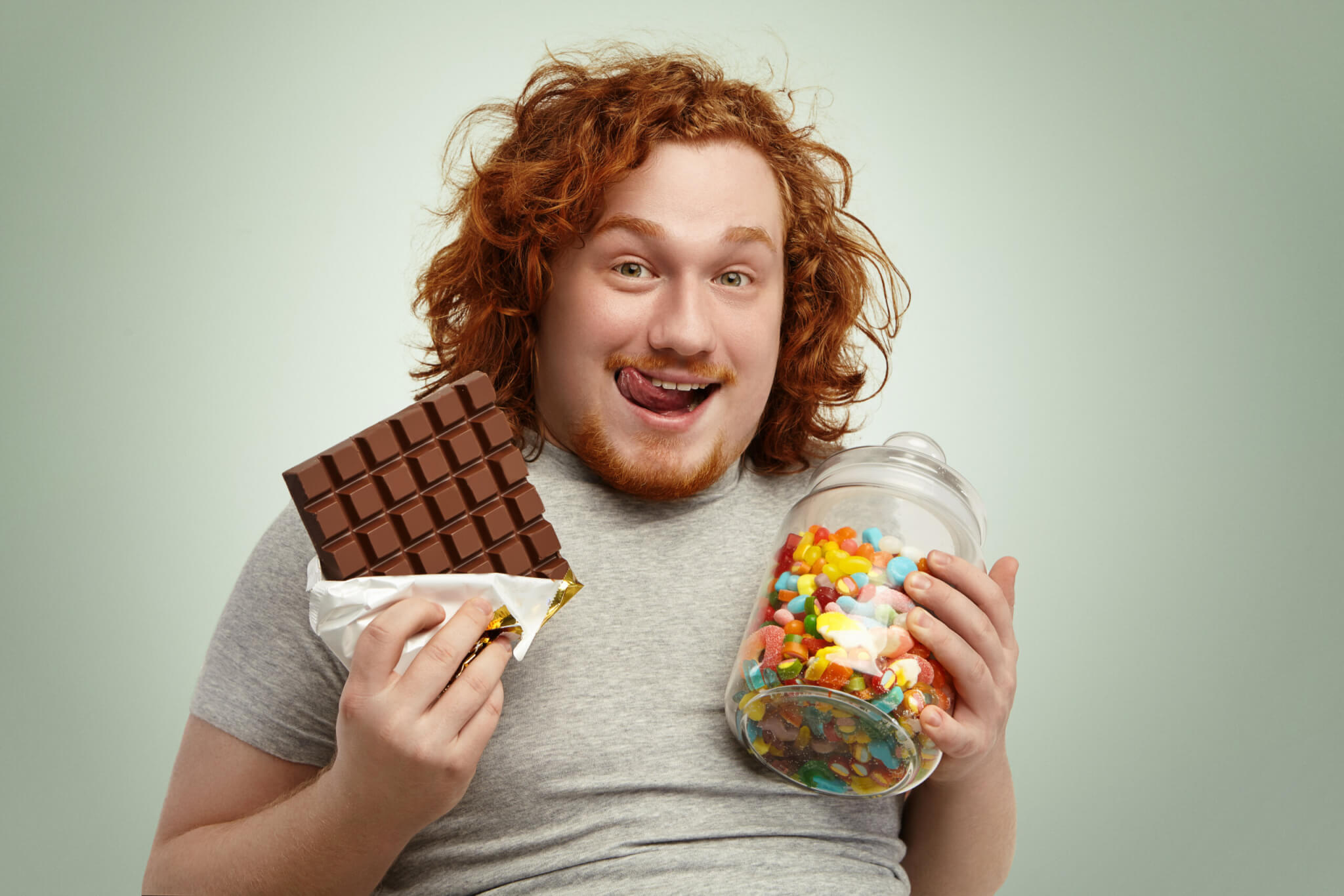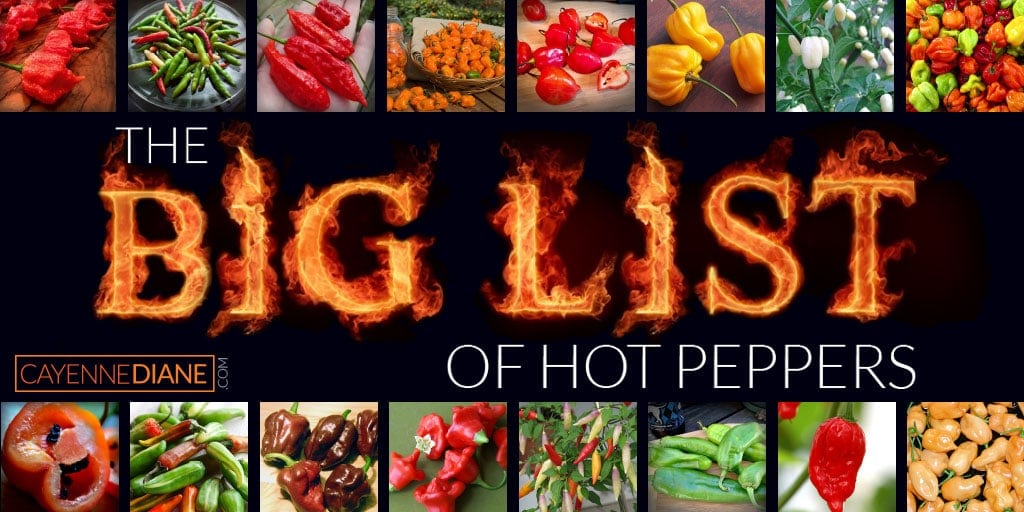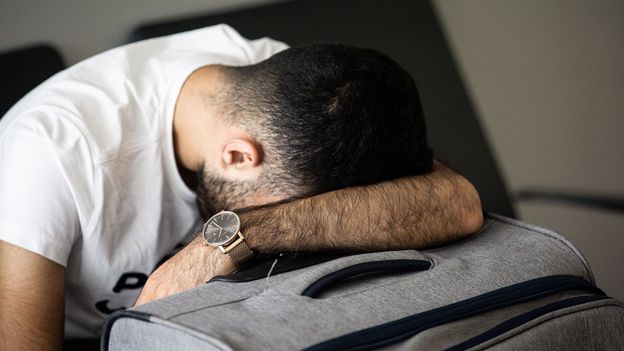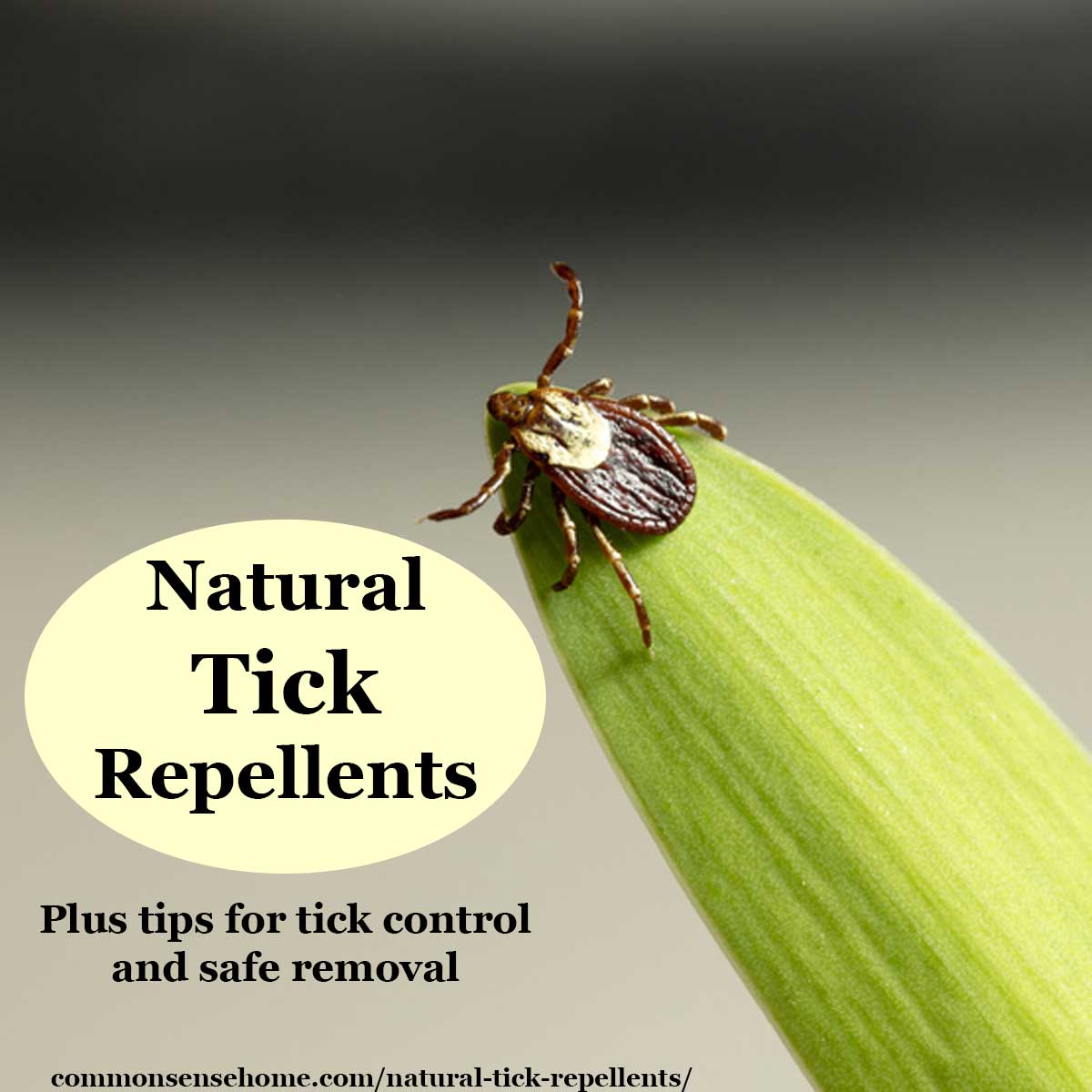Health
 studyfinds.org
studyfinds.org
We all get the occasional sugar craving, but a new survey finds that most Americans have gone completely overboard when it comes to sweet treats and drinks. In a startling revelation, the average American consumes an astonishing 36,000 grams of sugar per year — equivalent to nearly 80 pounds. This eye-opening statistic emerges from a poll of 2,000 Americans conducted by Talker Research on behalf of Hint Water, shedding light on the nation’s sugar habits and their surprising impact on hydration levels. The study found that the typical American ingests 99 grams of sugar daily, surpassing the sugar content of two 12-ounce cans of soda. This excessive consumption comes despite 85% of respondents actively working to reduce their sugar intake. The survey also reveals that for 34% of respondents, the majority of their daily sugar intake in beverages comes from their morning coffee. Another 28% say that soda makes up most of their liquid consumption. Interestingly, more than half of the participants (51%) believe that their sugar cravings might actually be a sign of dehydration. This insight gains significance when considering that respondents reported drinking only 48 ounces of water on a typical day, far below recommended levels.
sugarless ones contain aspartame which is bad. Tried organic lemonade once but that was too healthy and didnt taste good.
Sorry about the clickbait title but I thought it was funny and an appropriate reaction to this propaganda piece reminding people to wear sunscreen: https://www.npr.org/sections/shots-health-news/2024/06/17/nx-s1-5002030/sunscreen-tiktok-misinformation-melanoma The article "lies" by omission, if you want to accuse it of doing so, but here are some omissions to consider: *Sunscreen isn't needed for one, because you can just wear clothes to cover up. A lot of people who work outside would just wear long pants and sleeves. Or in the middle east there is the common image of people wearing clothes that cover the whole body. The fact this is seldom mentioned always strikes me as curious as it's a viable alternative to sunscreen, even assuming one must avoid sun on the skin. There are even clothes that have SPF ratings like sunscreen. *Article says "any sunscreen is better than no sunscreen"... which is a pretty dramatic claim as I could envision there being toxic sunscreens you should avoid. *Article fails to mention concerns of proven toxic additives to sunscreens (naturally these aren't in all sunscreens): https://www.bloomberg.com/news/articles/2023-05-24/many-sunscreens-still-have-potentially-dangerous-chemicals *Article fails to mention a little direct contact with sunlight, which sunscreen blocks or disrupts, is important for Vitamin D production; vitamin D being important for general health and well-being. *Article fails to mention a prevailing theory that diet influences one's susceptibility to being sunburned (particularly "seed oils" have been thought to increase one's ability to be burned; this may indeed be incorrect, but the broad idea of diet relating to possible sunburns sounds worth considering). This would be a good example of why people struggle to take seriously articles that strongly denounce "misinformation" as well as various "authorities" who seem to peddle "misinformation" they purport to be combating. Any other thoughts on avoiding toxic sunscreens and the like?
I saw an article about popular weight loss drugs today, which said they artificially stimulate the production of hormones in the brain to make people feel "satsified" and "full" (stimulate a feeling of "satiety") with whatever food they've eaten. I've seen before that people've said certain foods create more satiety than others; the hypothesis goes that more foods that may taste good but lack nutritional value and satiety have been consumed more today, resulting in more overweight and obese people. One issue is that it doesn't look like a lot of research has been done on what foods create a feeling of satiety; here's one such list of foods but the foods were determined subjectively I think by participants in a study: https://www.diabetesnet.com/food-diabetes/satiety-index/ Does this seem like a useful tool for people to lose more weight, for them to identify and consume more foods with a higher "satiety" than other foods?
 www.wired.com
www.wired.com
Does it work as well as toothpaste or is there some other way to skip the disposable toothpaste tubes? I think some places recycle the traditional "tubes"
 www.littlefreepantry.org
www.littlefreepantry.org
> The mini pantry movement is a grassroots, crowdsourced solution to immediate and local need. Whether a need for food or a need to give, mini pantries help feed neighbors, nourishing neighborhoods.
a lot of gum has sweeteners in it which give headaches to some people and allegedly contribute to causing cancers? I saw this gum as an alternative, are there any others that avoid some of the problems? Here's their site: https://refreshgum.com/
So there are a lot of articles that assert that having "good experiences" improves well-being much more than other things like accumulating material possessions beyond a reasonable level of need. However, whenever I try to look up "what are the best experiences to have" there's a bunch of random links that come up on a search engine. Yet I stumbled upon this book - "Time and How to Spend It: Seven Ways to Better Days" by James Wallman which outlines some criteria for elements of an experience that the author thinks is thought to be more valuable: The author uses an acronym "STORIES", which stands for: Story, Transformation, Outside & Offline, Relationships, Intensity, Extraordinary, and Status & Significance. An "ideal experience" should be worth telling a story about, should "transform" who you are into something new, should ideally be in nature unplugged, should be with other people or strengthen relationships, should have totally challenge you or have you fully immersed in the experience, should be awe-inspiring (like watching a sunset), and should boost your status or have a significance for you personally. I imagine "good experiences" that people have may lack these things, but I was curious what you think are some of the "best experiences" people can have and about what you think of this framework? (The author has created a "World Experience Organization" which seems to put on or highlight events the group believes to be interesting that people might partake in)
 www.cayennediane.com
www.cayennediane.com
> "Pepper X" was recognized as being the hottest pepper in the world according to Guinness Book of World Records in 2023. Was thinking of eating spicier and thought I could work my way up this list from less to more spicy foods > "Spicy foods are associated with various health benefits, including reduced mortality, better heart health, lower blood pressure, increased satiety, and improved circulation." -Brave AI
Seems like something useful in addition to lower intensity activities (like walking, versus running sprints in contrast), both of which seem to have a place in a "fitness regimen"
 www.theguardian.com
www.theguardian.com
The prospect of getting through Monday while missing out on breakfast, lunch and dinner is enough to make most people weep. But not Rishi Sunak, who does this every week while also running the country – and experts say it might bring benefits. A source close to the prime minister told the Sunday Times that Sunak undertook a 36-hour fast at the start of every week, consuming only water, tea or black coffee from 5pm on a Sunday to 5am on Tuesday. While the practice might sound like the type of extreme regime championed by Silicon Valley’s tech-bros, Adam Collins, associate professor of nutrition at the University of Surrey, said Sunak’s approach was, essentially, a more stringent version of the popular 5:2 diet, in which people restrict themselves to 500-600 calories twice a week. “When you add [the two days] together, it’s pretty much 36 hours,” he said. However, James Betts, professor of metabolic physiology at the University of Bath, stressed a restricted calorie diet did not put the body into a fasted state – unlike Sunak’s 36-hour approach. Such abstinence means the body runs through its normal energy stores. “In essence, what you’re doing is shifting the body from using fundamental carbohydrates for fuel towards using fat as a fuel over that 36-hour period,” Collins said. Collins said his own research, comparing people who fasted for 36 hours with those who followed a calorie-restricted diet for the same period and those who ate normally, found evidence of a dose-response. In other words, the more stringent the fast, the greater the shift from burning carbs to using fat – although Collins added that this comes with greater temporary glucose intolerance. A fast such as the one Sunak undertakes, he noted, could bring “metabolic flexibility” – the ability for the body to switch between fuels. That, Collins said, can lead to “metabolic resilience”, in other words a better ability to cope with the pressures of modern diet and lifestyle – be it periods of overeating, inactivity or stress. There is also evidence fasting can trigger autophagy – a process Collins likens to spring cleaning. “Your cells start to break down cellular components and then recycle those components for other things,” he said, adding that might be help to explain some of the apparent benefits of fasting for ageing and DNA repair.
 www.bbc.com
www.bbc.com
It turns out I'm far from alone. According to a 2023 meta-analysis that examined 91 studies across three continents, one in every five adults worldwide experienced general fatigue lasting up to six months, despite having no underlying medical conditions. In the US, 44% of the more than 1,000 adults surveyed by the National Sleep Foundation in 2019 said they felt sleepy between two to four days every week. While a 2022 YouGov poll of nearly 1,700 people found that one in eight UK adults were tired "all the time", with another quarter knackered "most of the time". Women were more likely to be fatigued than men, regardless of whether they had children or not — a finding that was echoed across multiple studies. ... But fatigue can also encompass a cognitive and emotional aspect – which explains why when we're tired, we might experience brain fog, find it a slog to get things done, or snap at those around us. It's only in the past decade that scientists have been able to dig deeper into these other facets of fatigue, thanks to advances in imaging technology and biochemical assays that allow us to study real-time changes in the brain, says Whittemore. "We're really just beginning to understand the neurobiology now and what parts of the brain are perceiving fatigue." Another challenge is that fatigue is incredibly subjective, and it can arise for myriad reasons. It's a symptom of many diseases and chronic conditions, including cancer, multiple sclerosis, long Covid, depression, and myalgic encephalomyelitis. However, it can also have much less serious causes. "It's absolutely important to distinguish between illness and non-illness-related tiredness," says Adam, who also teaches at the University of Aberdeen, where she is leading an ongoing study examining how fatigue impacts individuals with myeloma, heart failure, and long Covid. The benefits of getting sufficient sleep – the amount that adults need varies, but most people need seven or more hours a night, and experts recommend getting between seven and nine hours – have been extolled upon us time and again. Without this downtime, our bodies wouldn't be able to repair muscles, boost immunity, regulate emotions, consolidate memories and new information, among other critical functions. People who are fatigued for prolonged periods have a higher risk of death than the general population, as well as a higher risk of anxiety and depression. On a daily basis, getting inadequate rest can result in headaches and other bodily pains, as well as cause feelings of irritability, low mood, and an unfocused mental state. These effects often spill over to our relationships. "We know from the literature on sleep and marital satisfaction that when one person in a marriage is sleep deprived, there's more conflict in that couple," says Barnes. ... But getting sufficient shuteye is only one part of the equation. Quality matters too, if not more. "Getting fewer hours of solid sleep is better than more hours of sleep, but interrupted sleep," says Whittemore. "You feel much less refreshed if you have interrupted sleep." ... The resting neurons create space for cerebrospinal fluid, which usually surrounds the brain, to flood in and clear out accumulated debris, such as the sticky beta-amyloid plaques that are usually associated with Alzheimer's disease. It's a sort of waste-clearance system scientists call the glymphatic system. "If you have disrupted or dysfunctional sleep, it disrupts that whole balance," says Whittemore. "So there aren't as many toxins being cleared from your brain." ... This means that when we get our shuteye is important. Syncing sleep with our natural circadian rhythms – the brain's 24-hour internal clock that regulates the cycle of alertness and sleepiness – gives rise to the best-quality rest. This explains why shift work is often associated with poor health outcomes, ranging from heartburn to diabetes. ... Dehydration is another major cause of fatigue. Other typical culprits include caffeine and alcohol. "I think most people underestimate how much they impact the quality of their sleep," he says. "Caffeine, for instance, has a half-life of roughly five hours, which means even when you have a cup of coffee at noon, a quarter of that caffeine will remain at midnight."
I thought I saw literally one person's blog use the word "entovegan" but it seemed to make sense: this is a vegan diet, plus people add in bugs to eat (entomophagy). The thing is, people already eat bugs in various foods they eat, because the bugs inevitably get in to the foods when processing them. Vegan diets notoriously put people at risk for various nutritional deficiencies. I was wondering then if bugs might have a few of these nutrients that a "pure vegan" diet lacks, so if they just eat more bugs, they wouldn't have the deficiencies and wouldn't have the qualms about eating animals or animal products. I do not know the nutritional content of various bugs though, and if it would fill these deficiencies. I've also wondered if bug consumption might be good for various diseases or conditions (are there any special nutrients in bugs?). Personally, I think an omnivore diet is fine, and that meat and animal products are ok to consume where appropriate. I have also been fascinated by bugs as a food source, which is a common food source for various cultures throughout the world. I've seen some who are "grossed out" by eating bugs, or concerned about being prevented from eating meat. I wouldn't prohibit people from eating meat, but if eating bugs did save money and reduce environmental impact and was nutritionally similar to eating meat, I wouldn't object to more people opting to eat bugs instead. Biblically, St. John the Baptist feasted on "locusts and wild honey" (Matthew 3:4), so it's even a practice in Western Christian tradition (entomophagy, or bug eating). I view vegan diets as being a kind of "penance", because meat is often lawful to consume, but there have been plenty examples of saints who seem to have been something like vegan as well. Any thoughts on "entoveganism" and the (gross to some) practice of eating bugs (entomophagy)?


